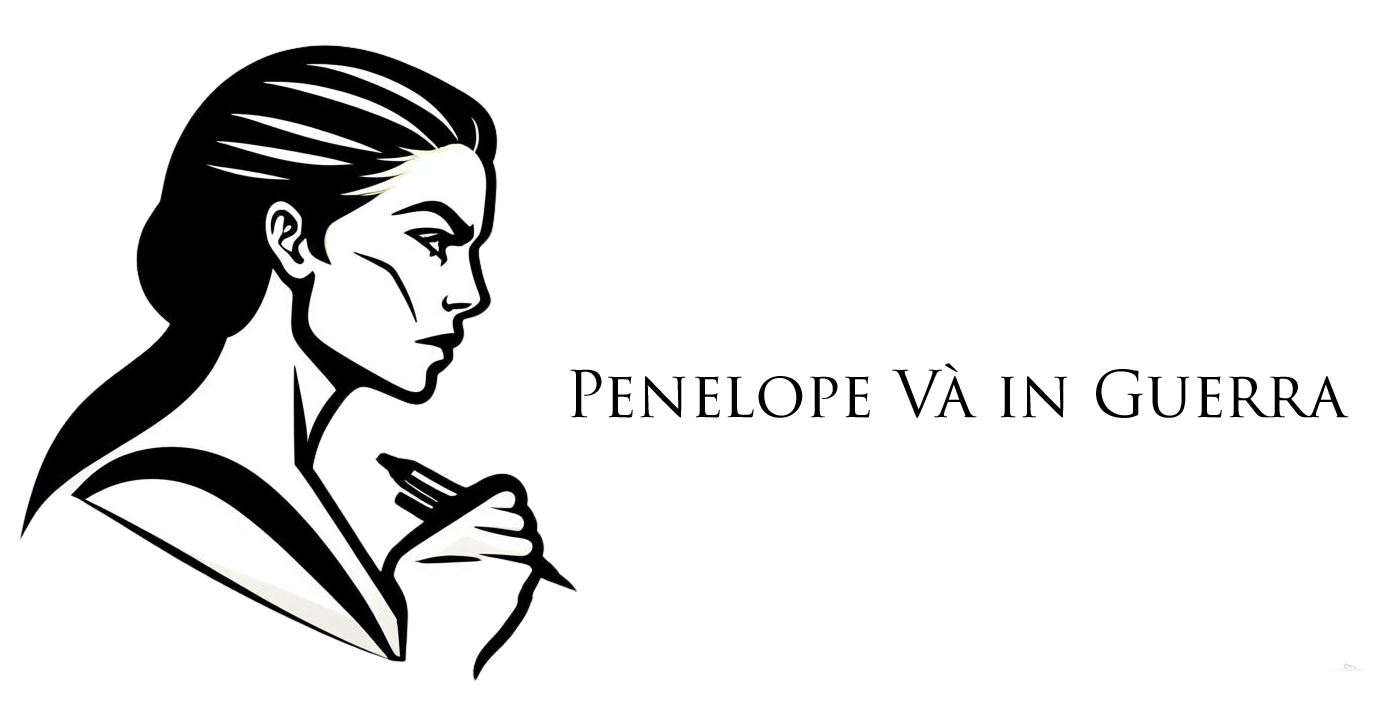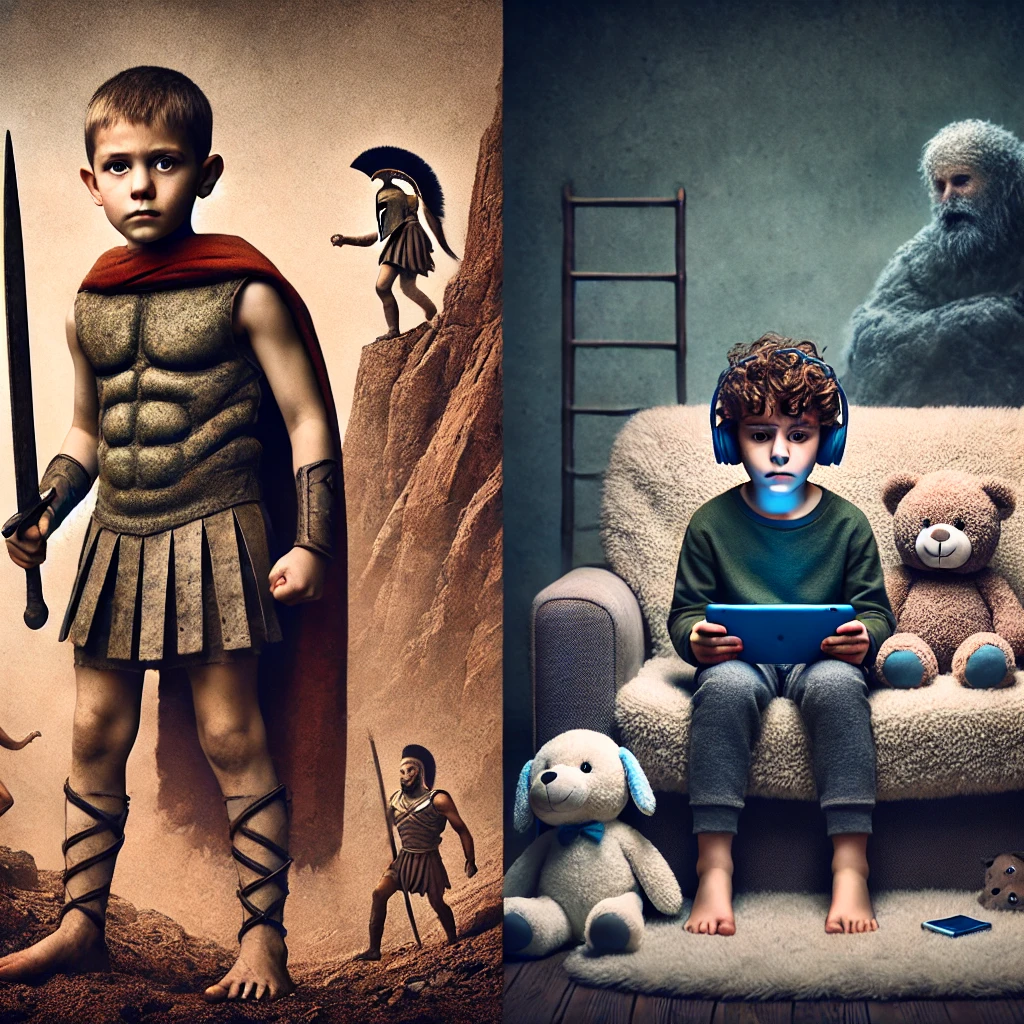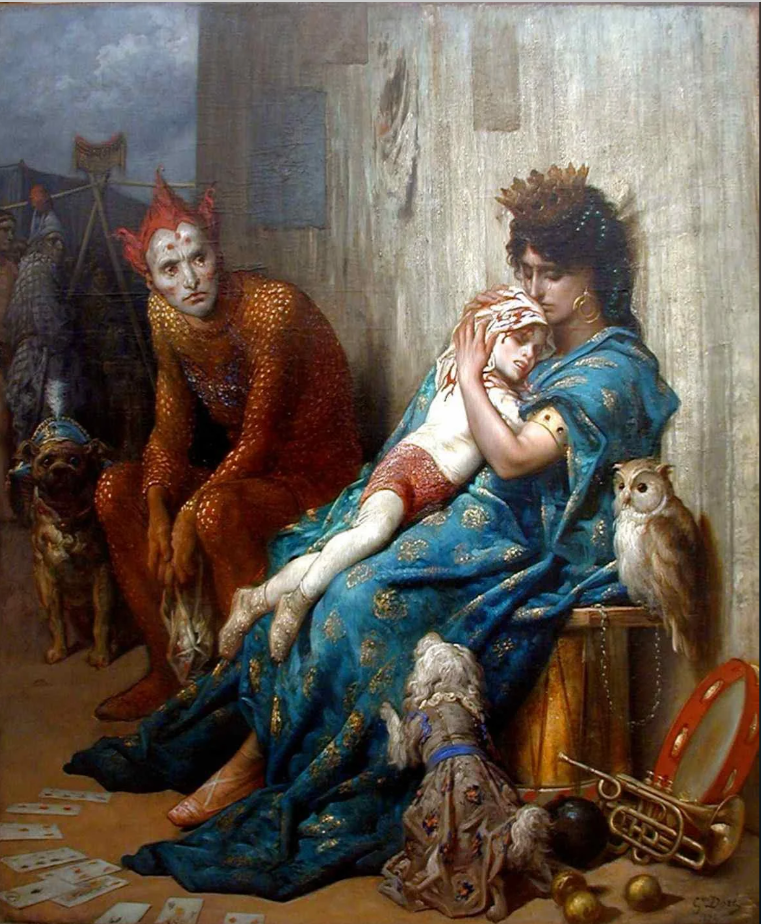“If you treat a person as if they were what they could be, they will become what they could be,” wrote Goethe.
Before comfort invaded our homes, before smartphones replaced the stories told by a mother, father, or uncle, children were treated as small adults and seen as active subjects. They were regarded as capable individuals, able to face concrete tests of strength, autonomy, and responsibility.
In Sparta, children were literally taken from their homes at seven years old to begin a grueling training called Agoghé. They underwent harsh training, deprivation (hunger, cold, light clothing even in winter), and were educated in cunning: encouraged to steal, they were punished if caught. It was a very harsh method to develop ingenuity and cunning.
Not too far back, my grandfather, at the age of seven, slept alone in the countryside to prevent anyone from stealing the flock (can you imagine a Western child of seven years old sleeping alone in the countryside today?). He even tells me that, being from a very poor family, he had never slept in a bed until the age of nineteen, when he left home to work in another town.
Rather than finding a bed to sleep in, I, myself, at nineteen, had to leave to another country to find a more uncomfortable bed. My room, full of color and stuffed animals, with a super-comfortable mattress and always fresh sheets, remains unchanged to this day, like a photograph of what at the time could have been my potential prison. Raising a child in an excessively comfortable environment is, in fact, a sentence.
The fact that we tend to deprive our children of pain, avoiding any frustration, speaking to them with ridiculous voices as if they were incapable of understanding, and removing every obstacle from their path before it even arises, is an eternal anesthetic that flattens life, because it kills desire. What can a child desire, if their desire has already been destroyed before even being born, because there’s nothing left for them to want?
For example, if we look at the concept of revenge in the Sardinian barbaric code from an educational perspective (regardless of whether it’s right or wrong, of course), we see a different way of understanding the responsibility of the individual: it is not an external authority that resolves the problems, but the individual himself, following shared rules. Likewise, the concept of theft, which holds the victim of the thief responsible first and foremost, and translates roughly like this: if you are incapable of taking care of and protecting what’s yours, then you deal with the consequences. This way of actively conceiving the individual, of making them responsible from the outset, which was still part of Sardinian mentality only half a century ago, has been gradually discarded, leading to the emergence of passive individuals in search of instant emotions to numb any kind of pain.
This doesn’t mean we should throw a child into the snow in a T-shirt to imitate Spartan children, or force them to sleep in a forest to do the same things our grandparents did at their age, but it’s important to extract from these comparisons the lesson we need. Despite all the psychological scars that an unbalanced Spartan education could bring, it’s inevitable that a child who, at seven years old, sleeps alone in the countryside at night will develop a mindset and resilience entirely different from someone raised on Kellogg’s and stuffed animals, who has never faced the slightest difficulty.
It’s not about returning to Sparta or to feuds, but about reclaiming the concept of personal responsibility, in the right measure. It’s about beginning to treat a child as what they should be: an autonomous being, both son and father of themselves; because only by facing reality do we become adults. And reality is anything but comfortable.



